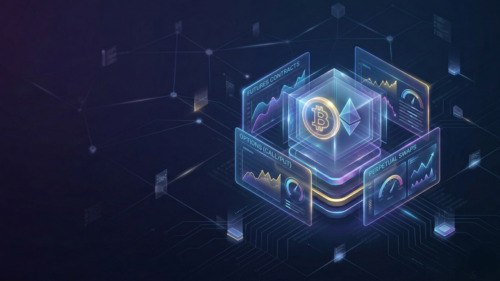Australian Leaders Spearhead Revolutionary Trends in Blockchain Gaming

- The annual blockchain gaming report has arrived – and some juicy advancements are coming in the industry.
- The big news is that more professionals in blockchain gaming now come from gaming backgrounds, as opposed to cryptocurrency.
- Digital asset ownership remains the top benefit of blockchain technology in gaming, cited by nearly ¾ of respondents.
- The industry continues to face misconceptions, with many believing that bots and Ponzi schemes are rife throughout GameFi.
Crypto’s biggest gaming group, the Blockchain Gaming Alliance (BGA), has unveiled its report for 2024 – revealing just how far the GameFi industry has come in the past 12 months. The release highlights some exciting steps the blockchain gaming sector has taken, in a shift likely to continue into the new year.
Much of the initial enthusiasm came thanks to the Telegram minigame craze, which onboarded millions of users who’d never used crypto before.
But play-to-earn games are a drop in the bucket compared to what the fast-maturing industry has in store.
Related: Solana Blockchain Hits New Records After PENGU Token Launch
Gaming Professionals Flock to Web3, Bringing Expertise to the Fast-Growing Sector
There were several impressive metrics for GameFi lovers to feast their eyes upon, but perhaps the most significant was simply participation.
Compared to 2021, the latest BGA report saw a 3x increase in respondents – including big-name gaming CEOs, esports legends and GameFi enthusiasts.
Blockchain gaming’s biggest criticism has always been the quality of the releases. While play-to-earn titles such as Hamster Kombat are fun and engaging, they’re a far cry from GTA 6 (giff pls Rockstar).
But the industry leaders are well aware of this fact and making some noise.
According to the survey, over half (52.5%) of all blockchain gaming professionals come from a gaming background, not crypto. This is a vital step towards legitimising the sector, by pairing the expertise of creatives with blockchain devs.
This [proportion] was the highest it has been in four years of conducting this survey – up from 34.2% in 2023.
 Blockchain Gaming Alliance
Blockchain Gaming Alliance The increased expertise is being paired with unique new revenue models for both publishers and players, with 18% of respondents suggesting that traditional games moving into Web3 will have a positive impact on all involved.
Diversification Still an Issue for Blockchain Gaming
Of course, GameFi isn’t without its challenges.
The survey also revealed a disappointing demographic gap, with only 17.3% of respondents identifying as female.
…We are far from where we’d like to be in terms of women’s representation in the BGA, so our work continues, to make sure we include and represent all groups within our industry.
 Sebastien Borget, President of Blockchain Game Alliance (BGA)
Sebastien Borget, President of Blockchain Game Alliance (BGA) The other major challenge identified was onboarding, with poor UX exacerbating the ability to bring non-Web3 customers to the scene.
However, this is no doubt improving, in no small part thanks to Telegram and Toncoin. The 2024 survey demonstrated a 20% drop in respondents suggesting onboarding was GameFi’s biggest barrier, implying major strides in this area.
Strong Aussie Representation in GameFi Scene Continues
For our readers Down Under, you’ll be happy to know that Aussies continue to make a major splash in the industry.
Related: Pixelverse Unveils MemeBattle: New Deck Builder Game Brings Crypto Memes to Life
Several big players were involved in the BGA report, including Corey Wilton, the co-founder of Mirai Labs. Speaking about the prominence of AI, Wilton said:
AI is a breakthrough for studios like us, most of them are using it just to generate art and speed up development in some way…What really matters is that studios develop experiences that were previously IMPOSSIBLE without AI.
 Corey Wilton, Co-founder at Mirai Labs
Corey Wilton, Co-founder at Mirai Labs Andrew Sorokovsky, the VP of Business Development at Aussie gaming blockchain Immutable, also gave some insight into the power of Web3 for gaming.
The theoretical idea of players owning and transporting assets across games is revolutionary and aligns with the broader vision of decentralisation and true ownership.
 Andrew Sorokovsky, the VP of Business Development at Immutable
Andrew Sorokovsky, the VP of Business Development at Immutable Finally, Leah Callon-Butler, an Aussie representative on the board of BGA, noted the impressive growth of the industry in South-East Asia.
The growth of the Philippine Web3 gaming community is a testament to the idea of earning money by playing a fun video game, which is still a dream for many, especially in places where economic opportunities are limited…It’s a pathway to financial independence [and] creativity.
 Leah Callon-Butler, Director of Emfarsis
Leah Callon-Butler, Director of Emfarsis 





